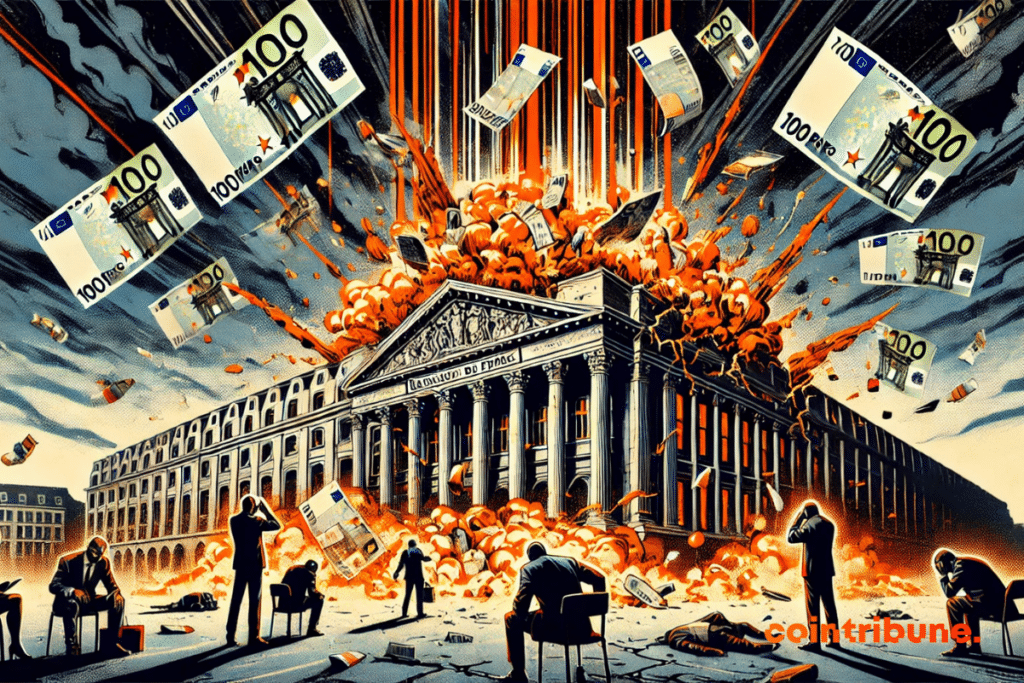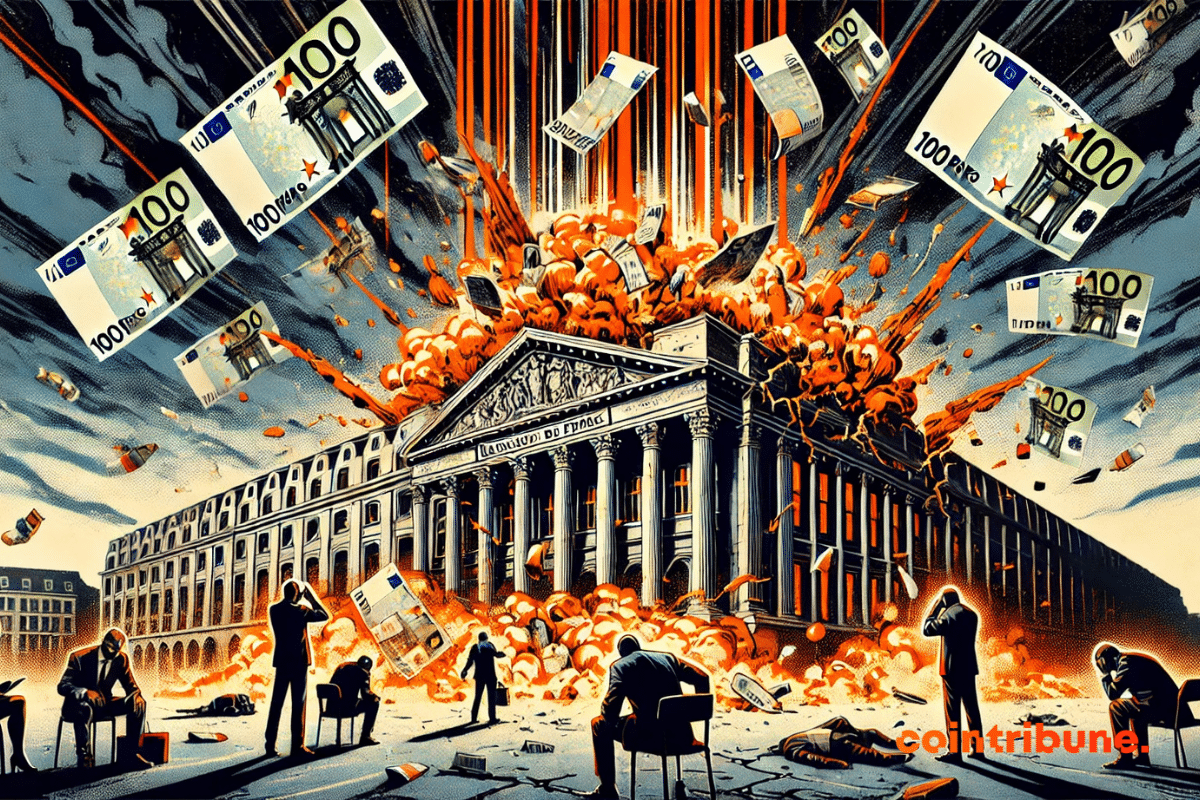One on March 24, 2025 ▪
5
min at reading ▪
Banque de France found itself in 2024, which faced an unprecedented financial situation with an operating loss of EUR 17.7 billion. This loss, by far unofficial, emphasizes deep fragility in the European financial system, impaired inflation, increase in interest rates and public debt management.

A source of colossal loss
Banque de France recorded a loss of EUR 17.7 billion in 2024, mainly due to its government bond portfolio in the context of the fluctuating interest rate. Several factors are responsible for this loss:
- Massive purchases with low distribution bonds: In times of ECB’s health crisis, low government bonds (approximately 0.7 %) have purchased in economic support. This had an impact on the profitability of Banque de France.
- The difference between interest rates and obligations: when interest rates increased to inflation, the ECB had to reward bank deposits for much higher rates (4 %), while bonds purchased at the beginning of the crisis brought much lower returns.
- Decrease of revenues: The revenues of these obligations were not sufficient to compensate for the high costs associated with increasing the level of remuneration for banking deposits, causing imbalances in Banque de France accounts.
- Uncompromising losses: Although the bank partially compensated for this loss, the net amount of EUR 7.7 billion remains unsurpassed, which influenced the finances of the French state.
These elements explain the nature and extent of the loss that Banque de France suffered. In addition, they illuminated the weaknesses of the European monetary system in the face of a moving economic context.
Consequences for State and Perspectives
In addition to these direct losses, the situation causes main concern for French public finances.
A net loss of EUR 7.7 billion in 2024 prevents Banque de France from paying dividends of the state, which has reduced the sources of the available state for its expenses.
This loss, although it is that the accumulated reserves are abundant, shows a critical trend that began in 2023 with a deficit of EUR 12.4 billion.
The fact that these losses are getting worse from one year to another invites to think about the sustainability of this model, as well as the Banque de France capacity to maintain such a volatile economic context.
However, in 2025, the financial bodies determine to reduce losses, indicating that the situation could stabilize if the economic conditions were improved. However, this will largely depend on the development of interest rates and inflation, as well as the ECB response to prevent the collapse of national central banks.
In the long run, such a recurrent loss could make it to review its economic priorities, even leading to adjustments to its budgetary policy.
This loss reveals the weaknesses of the European Economic System and question the sustainability of contemporary monetary policy. The uncertainty that persists in terms of interest rates and the impact of these possibilities on public finance requires a serious reflection of the future of the welfare state and the management of public finances in France.
Maximize your Cointribne experience with our “Read to Earn” program! For each article you read, get points and approach exclusive rewards. Sign up now and start to accumulate benefits.
A graduate of the Toulouse and the Blockchain Consultant Certification certification holder and I joined the adventure of Cointribuna in 2019. I convinced of the potential of blockchain to transform many economy sectors, committing to raising awareness and informing the general public about how the ecosysty developed. My goal is to allow everyone to better understand blockchain and take the opportunity they offer. I try to provide an objective analysis of messages every day, decrypt trends on the market, hand over the latest technological innovations and introduce the economic and social issues of this revolution.
Renunciation
The words and opinions expressed in this article are involved only by their author and should not be considered investment counseling. Do your own research before any investment decision.

